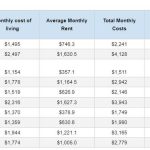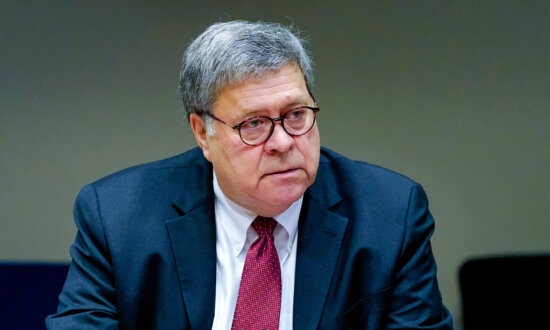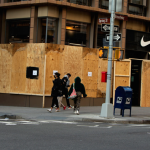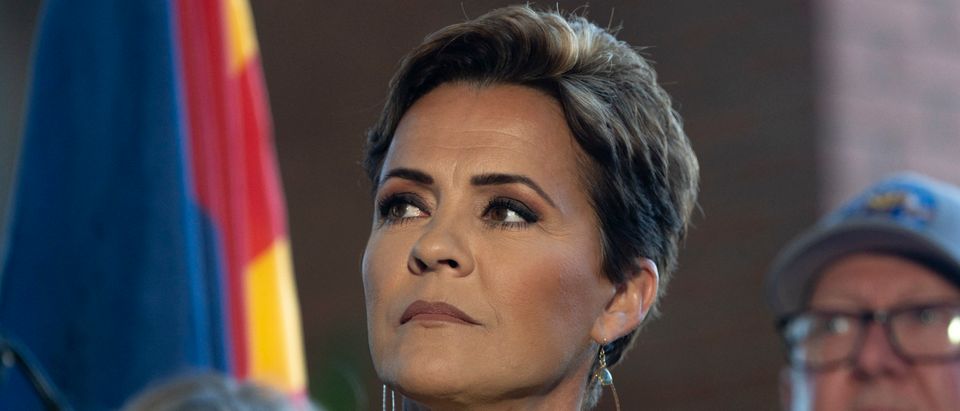Charges against Stewart Rhodes in Jan. 6 riot ‘very curious’
Why would the Justice Department arrest Oath Keepers founder Stewart Rhodes now in its investigation of Jan. 6, giving him a full year to destroy evidence?
That’s a question posed by investigative reporter Darren Beattie, who has presented considerable evidence that a former president of Oath Keeper’s Arizona chapter tied to Rhodes, Ray Epps, played a crucial role in inciting the breach of the Capitol.
Critics of reporting by Beattie and others who share his belief that the violence on Jan. 6 was orchestrated by FBI informants, argue the arrest of Rhodes and 10 colleagues shows the Oath Keepers chief was not a government asset.
However, in an interview with Steve Bannon’s “War Room,” Beattie said the arrest – coming on the heels of exposure of the evidence against Epps in Congress and the release of a book on Jan. 6 – actually “only intensifies” the questions raised in reporting by Revolver News.
And it “signals a much more interesting dynamic than we may have anticipated,” Beattie said.
He noted that seditious conspiracy is a very rare charge, and it’s even more rare to get a conviction.
Prior to the charge against Rhodes, critics of the government’s contention that there was an “insurrection” on Jan. 6 had argued that nobody had been charged with anything related to insurrection.
One question Beattie raises is why Rhodes wasn’t searched prior to his arrest this week, with the exception of seizing a single cellphone four months after Jan. 6.
“So, here is one of the few seditious conspiracy charges that they are building up for a year, and they don’t think he’s important enough to search him beyond a single cellphone, four months after January 6th?”
And then they gave Rhodes an additional eight months, in total an entire year, to destroy evidence.
“That doesn’t make any sense,” Beattie said.
A second question is why the FBI did not, in the intervening period, arrest Rhodes for a lesser charge, such as trespassing.
Beattie noted there is footage of Rhodes stepping on Capitol grounds, a criminal offense for which the DOJ charged others who had far less of a profile than the Oath Keepers chief.
Rhodes also could have been charged with conspiracy to obstruct an official proceeding, Beattie said.
“So, all of this amounts to something that is very curious and simply doesn’t add up.”
See the interview:
In a Senate hearing Tuesday, the FBI’s assistant executive director for the national security branch, Jill Sanborn, repeatedly said she could not answer whether or not Epps was an FBI informant.
Finally Sen. Ted Cruz, R-Texas, asked Sanborn what he described as not a law enforcement question, but one of “public accountability.”
“Did federal agents or those in service of federal agents actively encourage violent criminal conduct on January 6th?” the senator asked.
“Not to my knowledge, sir,” Sanborn replied.
Cruz began his questioning with: “How many FBI agents or confidential informants actively participated in the events of January 6th?”
Sanborn replied: “Sir, I’m sure you can appreciate that I can’t go into the specifics of sources and methods.”
The FBI official also said she could not answer whether or not any bureau agents or confidential informants committed or actively encouraged crimes of violence on Jan. 6.
Cruz then asked, “Who is Ray Epps?”
“I’m aware of the individual, sir. I don’t have the specific background to him,” Sanborn replied.
Cruz showed images of the video evidence as he recounted that a crowd surrounding Epps on the night of Jan. 5 chanted “fed, fed, fed” as Epps urged people to go inside the Capitol the next day.
The Texas lawmaker also showed an image of Epps whispering into the ear of a man who was seen five seconds later breaking down the barrier. And he noted that Epps was removed from the FBI Most Wanted list without explanation and never was charged.
“No one has explained why a person videoed urging people to go to the Capitol, a person who’s conduct was so suspect the crowd believed he was a fed, would magically disappear from a list of people the FBI was looking at,” Cruz said.
Later Tuesday, the House Select Committee to Investigate the January 6th Attack on the United States Capitol issued a statement regarding Epps. The committee said it had spoken with Epps and he denied being an FBI informant or working for law enforcement.
On Twitter, Rep. Adam Kinzinger of Illinois, one of the two Republicans on the committee, along with Rep. Liz Cheney, R-Wy., mocked Cruz and others who point to the fact that Epps clearly was involved in inciting the riot yet has not been charged.
“One more @tedcruz conspiracy down. Ray Epps has cooperated and is nothing but a Jan 6 protest attendee, in his own words. Sorry crazies, it ain’t true,” Kinzinger wrote.
The committee said in its statement that it is “aware of unsupported claims that Ray Epps was an FBI informant based on the fact that he was on the FBI Wanted list and then was removed from that list without being charged.
“The Committee has interviewed Epps. Epps informed us that he was not employed by, working with, or acting at the direction of any law enforcement agency on Jan 5th or 6th or at any other time, & that he has never been an informant for the FBI or any other law enforcement agency.”












